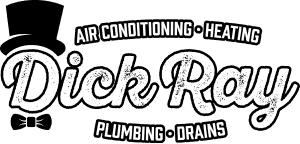As the summer heat peaks and your air conditioner struggles to keep up, the idea of upgrading to a larger unit might seem like the perfect solution. However, a bigger air conditioner isn’t necessarily a better one. Before you opt for a more substantial model, let’s explore why this common fix might not be the most effective approach to enhancing your home’s cooling efficiency.
Do You Need a Bigger Air Conditioner?
It’s a common belief that a bigger air conditioner will keep your home cooler more effectively, especially when your current unit runs non-stop. However, this common misconception can lead to significant problems down the line. If you have a standard 3-ton air conditioner and decide to upgrade to a 5-ton unit, you might think it will cool your house faster and more efficiently. In reality, this is far from the truth.
Short Cycling and Its Consequences
A larger air conditioner will cool your home quickly, but this rapid cooling comes with a hidden cost: short cycling. When an air conditioning unit short cycles, it turns on and off frequently. This constant starting and stopping can cause excessive wear and tear on critical components like the compressor and fan motor. Over time, this can lead to higher maintenance costs and a reduced lifespan for your unit.
Humidity Issues
One of the biggest issues with an oversized air conditioner is its inability to effectively manage humidity. While a larger unit will cool your home rapidly, it won’t run long enough to dehumidify the air properly. This can leave your home feeling cool but clammy, creating an uncomfortable indoor environment. Proper humidity control is essential for comfort, and an oversized unit simply cannot provide it.
Better Solutions Than a Bigger Air Conditioner
Instead of opting for a bigger air conditioner, consider more efficient alternatives designed to handle both temperature and humidity control.
Variable Speed Units
Variable speed air conditioners are an excellent choice for maintaining consistent comfort in your home. These units can adjust their speed to match the cooling needs of your home, running longer at lower speeds. This not only reduces wear and tear but also improves humidity control. A variable speed unit will cool your home effectively while squeezing out excess humidity, creating a more comfortable indoor environment.
Zoning Systems
If you have a larger home, a single air conditioner might struggle to cool all areas evenly. Instead of installing a second system, consider a zoning system with automatic dampers. These systems can direct airflow to different areas of your home as needed, ensuring each zone is properly cooled. This approach can be more cost-effective and less invasive than adding another air conditioning unit, as it requires less ductwork and fewer modifications to your home’s structure.
Ductless Mini-Splits
Ductless mini-split systems offer a flexible and efficient solution for homes with specific cooling needs. These systems consist of an outdoor unit and one or more indoor units, known as head units, which can be placed in different rooms. Each head unit can be controlled independently, allowing you to cool only the rooms you use. This targeted approach can save energy and reduce cooling costs, as you’re not wasting energy on unoccupied spaces.
What If You Have a Larger Home?
For larger homes, cooling can be more challenging, but there are efficient ways to ensure comfort without resorting to a bigger air conditioner.
Using Zone Dampers
Zone dampers can be installed in your existing ductwork to create different zones within your home. When one zone reaches the desired temperature, the system redirects airflow to another zone that still needs cooling. This method ensures that all areas of your home are cooled effectively without the need for a larger or additional air conditioning unit.
Installing Ductless Systems
For homes with unique cooling needs, ductless systems provide a versatile solution. These systems are ideal for adding cooling to specific rooms or areas without extensive ductwork. By installing a ductless mini-split system, you can enjoy efficient cooling in targeted areas, enhancing overall comfort in your home.
Additional Systems and Power Considerations
If your home originally came with only one system, adding another could mean more ductwork and running additional power lines. This can be quite a bit of work and may not be the most practical solution. However, if you’re willing to invest, it’s possible to add new systems to your home. For those looking for a less invasive option, mini-split systems are ideal since they are ductless and can be easily installed without extensive modifications.
In Summary
Choosing a bigger air conditioner might seem like an easy fix for your cooling problems, but it can lead to issues such as short cycling, increased wear and tear, and poor humidity control. Instead, consider more efficient solutions like variable speed units, zoning systems, or ductless mini-splits. These options provide better temperature and humidity control, ensuring a comfortable and energy-efficient home.
If you have questions or need help choosing the right system for your home, contact us today.




